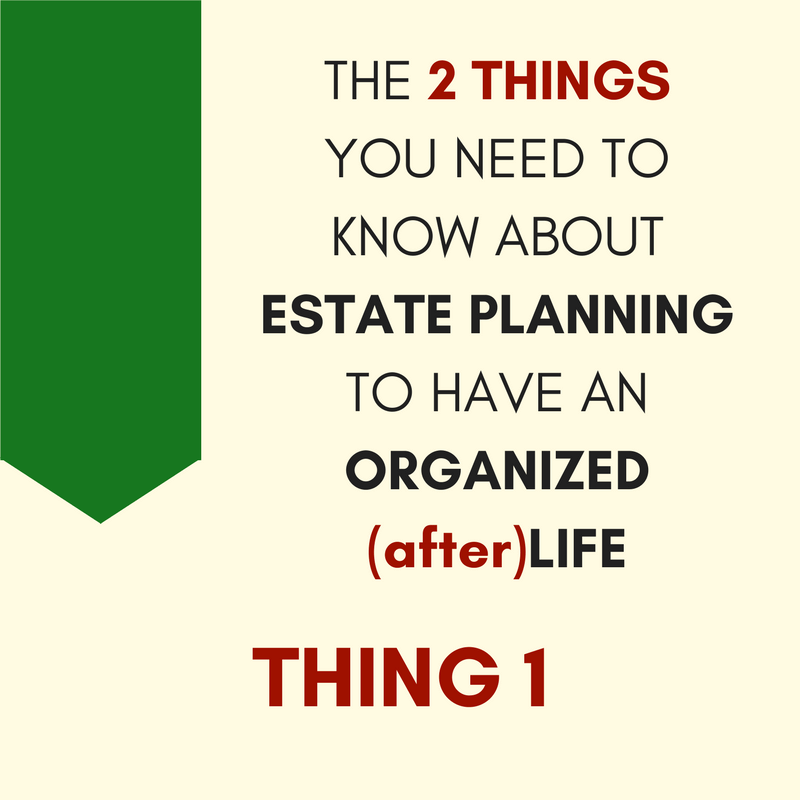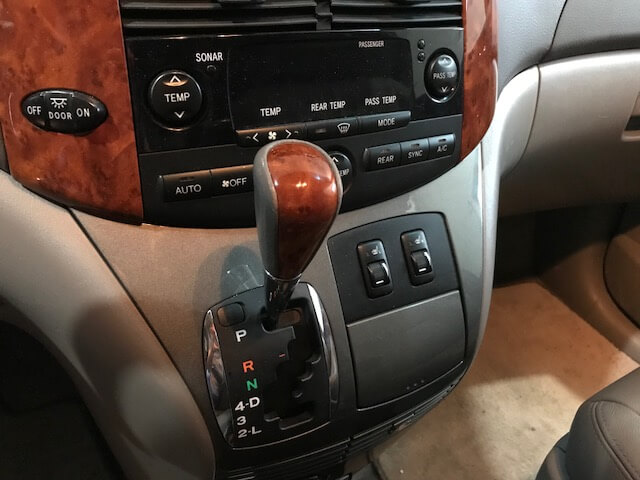
22 Apr The Two Things You Need To Understand About Estate Planning. Thing 1.
I have a spiel. It’s the spiel that I use with almost every client and usually the first thing we talk about. It forms the basic understanding of how your stuff moves after you die. If we understand that, then we can do a better job of preparing for the transfer ahead of time. Ultimately, when we talk about estate planning, that’s what we mean. Planning ahead of time (before you die) so that the legal issues will be minimized. The vast majority of legal issues involve how your stuff moves.
Good estate planning is organizing so that your assets move efficiently and in order to do that, you need to understand two things.

So, without further ado, Thing 1.
When you die, you’ll (probably) have two different types of assets: non-probate assets and probate assets. Thing 1 is non-probate assets. Non-probate assets move automatically.

How? Because there is a document somewhere that is specific to this asset and says where that asset goes next.
Now. Ready for this… the document I’m talking about isn’t a will. (Pwesch!) I heard that too. That was your mind. It was just blown.
I’ll give you a second.
A will deals with your probate assets…. that’s Thing 2. We’re talking about Thing 1.
Okay.
I said you’d probably have a non-probate asset when you die. Most people do. How? Because a lot of people have a life insurance policy. When you took out that policy, what did the agent ask you?
Who gets the check when you die?
They fill out a beneficiary designation which tells the company who gets the insurance money when you die.
And when you die, (for the vast majority of policies) that person just needs to show up to an agent’s office, show some ID, show your death certificate, fill out some paperwork with the company and wait for the check.
Easy peasy…

… and (usually) pretty fast.
Things like real estate, bank accounts, retirement accounts, cars, and other things can be set up to be a non-probate asset.
Sounds pretty good, huh?
Well, like most things there can be drawbacks. For some people, those drawbacks are NBD (no big deal for you non-texters). For others, those drawbacks can be a very big deal.
You want to know about what a will does, don’t you? Like I said, that deals with probate assets. Thing 2. We’ll get to that next.



Pingback:The Two Things You Need To Understand About Estate Planning. Thing 2. – An Organized (after)Life
Posted at 22:12h, 01 May[…] Last time I talked about Thing 1 of the Two Things You Need To Understand About Estate Planning. Thing 1 is the first type of […]
Pingback:Life Estates. – An Organized (after)Life
Posted at 20:30h, 08 May[…] Life estates can be useful tools in the estate planning process. The property is transferred to the recipients before death. Since the rights automatically expire when the person does, nothing goes through the probate process. It’s a Thing 1. […]
Pingback:Trusts. What Are They Anyway? – An Organized (after)Life
Posted at 11:32h, 05 June[…] of the assets and the control of the assets are resolved. Automatically. Assets held in trust are a Thing 1 asset. They don’t hit your estate, so they can continue to be controlled and the benefits […]
Pingback:Free Free Free. – An Organized (after)Life
Posted at 22:08h, 19 July[…] written about the two types of assets… Thing 1/non-probate/automatic and Thing 2/probate/stuck assets. I’ve also talked about understanding Thing 1 and Thing 2 […]
Pingback:Probate Terms – An Organized (after)Life
Posted at 21:55h, 25 October[…] Non-Probate Asset: an asset that is directed to transfer automatically upon death, examples of such transfers are through beneficiary designations, transfer on death designations, joint ownership with rights of survivorship, or as successor beneficiaries on a trust. […]
Pingback:Step 4 fore Efficient Estate Planning: Execute – An Organized (after)Life
Posted at 20:53h, 01 April[…] account beneficiary designations all should be double checked and updated accordingly. Remember, Thing 1 assets will transfer regardless of the will. This is your chance to make sure those directions are […]
Pingback:Beneficiary Designations - An Organized (after)Life
Posted at 14:15h, 28 March[…] doesn’t a will dictate where everything goes? No. It’s not that easy. There are two kinds of assets, assets are stuck – that’s what a will deals with – and assets that are not. […]